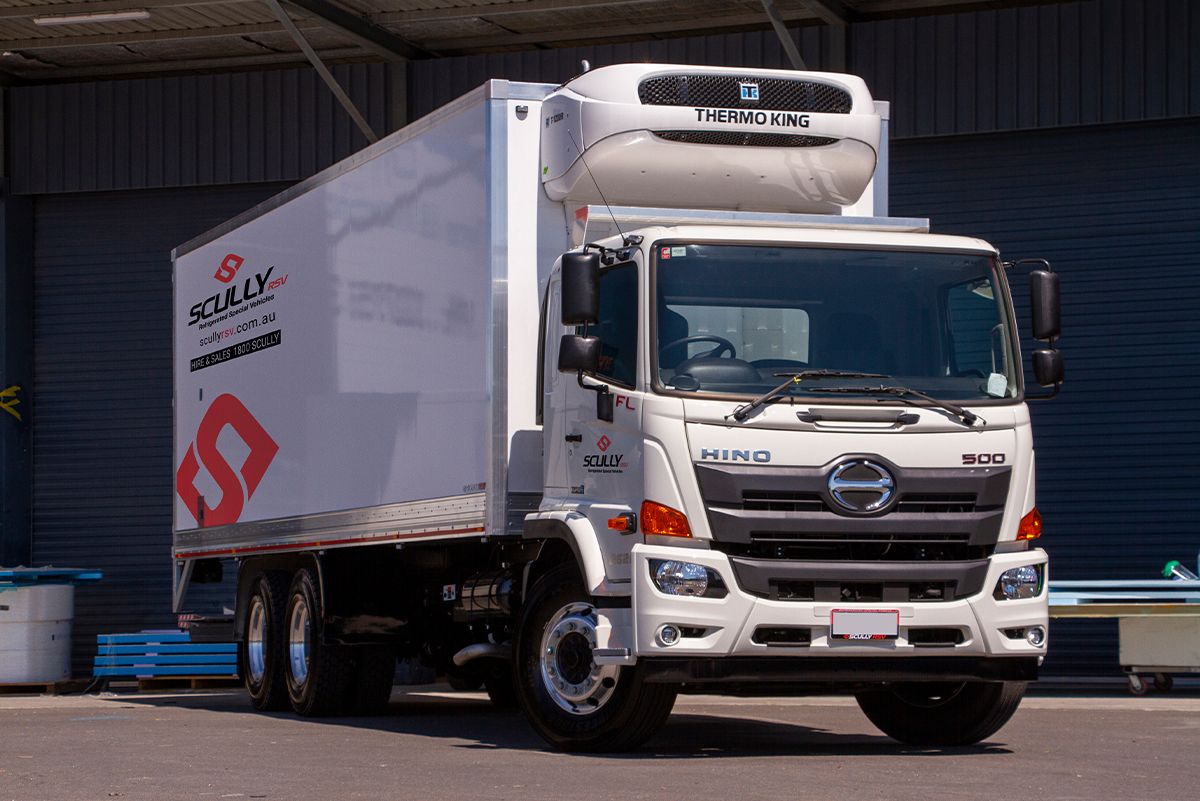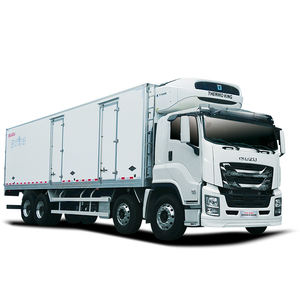Choose Thermo King Truck Refrigeration for Long-Haul Quality
Leading Advancements in Transport Refrigeration: Enhancing Efficiency and Security
The landscape of transportation refrigeration is going through substantial transformation, driven by advancements intended at enhancing both effectiveness and safety. As these developments proceed to evolve, it is necessary to discover their effects on operational practices and regulative conformity, prompting a better exam of how they improve the future of transportation refrigeration.
Smart Temperature Level Keeping An Eye On Equipments
In the realm of transport refrigeration, clever temperature tracking systems have actually emerged as an important innovation for making sure the honesty of temperature-sensitive items. These advanced systems take advantage of Net of Points (IoT) technology to offer real-time data on temperature level fluctuations, enabling drivers to keep optimum problems throughout the supply chain. By continuously tracking the temperature of cooled containers and vehicles, companies can promptly identify deviations that might jeopardize product quality.

Moreover, wise surveillance systems commonly incorporate automated signals and notifications, permitting stakeholders to respond immediately to any kind of prospective concerns. This proactive method not just minimizes the danger of spoilage however additionally boosts compliance with regulative criteria governing food security and pharmaceutical transportation.
The assimilation of data analytics within these systems likewise promotes anticipating maintenance, assisting drivers to predict potential equipment failures prior to they take place. This capacity reduces downtime and enhances functional performance, inevitably leading to cost savings.
Eco-Friendly Refrigerants
Smart temperature surveillance systems play an important role in preserving item quality, but the performance of transport refrigeration additionally hinges on the option of cooling agents used. In comparison, arising options like hydrocarbon-based cooling agents and hydrofluoroolefins (HFOs) existing reduced GWP alternatives, providing both performance and sustainability.
These environmentally friendly refrigerants not only decrease ecological impact but likewise line up with international laws aimed at eliminating unsafe substances. Their adoption can result in improved power performance, inevitably reducing operating costs for transport refrigeration systems. Additionally, making use of all-natural cooling agents, such as ammonia and carbon dioxide, has actually obtained grip as a result of their excellent thermodynamic homes and lower environmental footprint.
Buying green cooling agents is not just a regulatory conformity action; it stands for a tactical decision that enhances brand name track record and promotes customer commitment. refrigerated transportation thermo king. By prioritizing sustainable techniques, companies can add to a greener future while making sure the integrity of transported items
Advanced Insulation Materials
Making use of sophisticated insulation materials is essential for enhancing transport refrigeration systems, as they dramatically enhance power effectiveness and keep constant temperature level control. Conventional insulation approaches typically drop short in protecting against thermal transfer, resulting in raised energy intake and fluctuating temperature levels within refrigerated compartments.
Arising materials such as vacuum cleaner insulated panels (VIPs) and aerogels use premium thermal resistance, enabling thinner accounts without compromising efficiency. VIPs, for instance, make use of a vacuum cleaner layer to reduce convective and conductive heat transfer, making them optimal for space-constrained applications. Aerogels, known for their porous and lightweight framework, supply outstanding insulation while significantly decreasing total system weight.
Moreover, incorporating phase adjustment products (PCMs) right into insulation systems can even more support temperature levels during transit. These materials take in and launch thermal power, properly buffering versus external temperature variations.
The integration of these sophisticated insulation materials not only decreases the operational prices connected with energy usage however additionally expands the rack life of temperature-sensitive products. As the transportation refrigeration market remains to progress, the fostering of ingenious insulation modern technologies will certainly be essential in boosting both performance and security in cooled transport.
Automated Path Optimization
The effectiveness of transport refrigeration systems is significantly improved through automated route optimization, which leverages advanced formulas and real-time information to determine one of the most efficient courses for delivery. By examining numerous variables such as traffic patterns, weather problems, and shipment home windows, these systems can dramatically reduce traveling time and gas usage.
Automated route optimization minimizes human mistake and subjective decision-making, which can cause ineffectiveness. This technology makes it possible for fleet managers to allocate sources better, ensuring that chilled items preserve their required temperature level throughout the journey. By maximizing paths, companies can additionally improve consumer contentment with prompt shipments.
Moreover, automated systems can adjust to unforeseen scenarios, such as road closures or abrupt traffic spikes, permitting for dynamic rerouting. This adaptability not only secures the integrity of pop over here temperature-sensitive products yet also adds to overall functional performance.
Carrying out automated course optimization can lead to substantial expense financial savings while reducing the carbon footprint associated with transportation. As businesses progressively focus on sustainability, this innovation sticks out as an essential element in modern-day transport refrigeration, lining up functional objectives with environmental obligation. Eventually, automated course optimization represents a considerable improvement in the pursuit for efficiency and security in transportation refrigeration.

Real-Time Data Analytics
Automated course optimization substantially gain from the integration of real-time information analytics, which supplies crucial insights right into the performance of transportation refrigeration systems. By using real-time data, transportation operators can monitor temperature level variations and devices performance, making certain that disposable products are maintained within called for parameters throughout transportation. This positive approach not just improves the quality of the transported items however also mitigates the danger of spoilage and loss.

Along with enhancing performance, real-time analytics improves safety and security by ensuring conformity with regulative standards for temperature control. This not only protects public health and wellness however likewise fortifies a firm's track record - thermo king truck refrigeration. As the transport refrigeration industry evolves, the combination of real-time data analytics becomes a keystone for driving innovation, sustainability, and functional excellence
Final Thought
In verdict, the advancements in transport refrigeration dramatically improve both performance and safety within the industry. Smart temperature level tracking systems and real-time data analytics offer vital oversight, while green cooling agents and advanced insulation materials add to sustainability and power performance. Furthermore, automated course optimization algorithms not just click reference decrease traveling time however likewise decrease environmental impact. Collectively, these technologies stand for a crucial evolution in transportation refrigeration, guaranteeing conformity with regulative criteria right here and promoting a greener future.
The landscape of transportation refrigeration is going through considerable change, driven by developments intended at boosting both effectiveness and safety.Smart temperature level tracking systems play a vital role in preserving product high quality, but the performance of transportation refrigeration additionally pivots on the option of cooling agents made use of. Their adoption can lead to improved power efficiency, eventually reducing operating costs for transportation refrigeration systems. Ultimately, automated route optimization represents a substantial improvement in the mission for effectiveness and safety and security in transport refrigeration.
In final thought, the developments in transportation refrigeration substantially enhance both efficiency and safety and security within the industry.